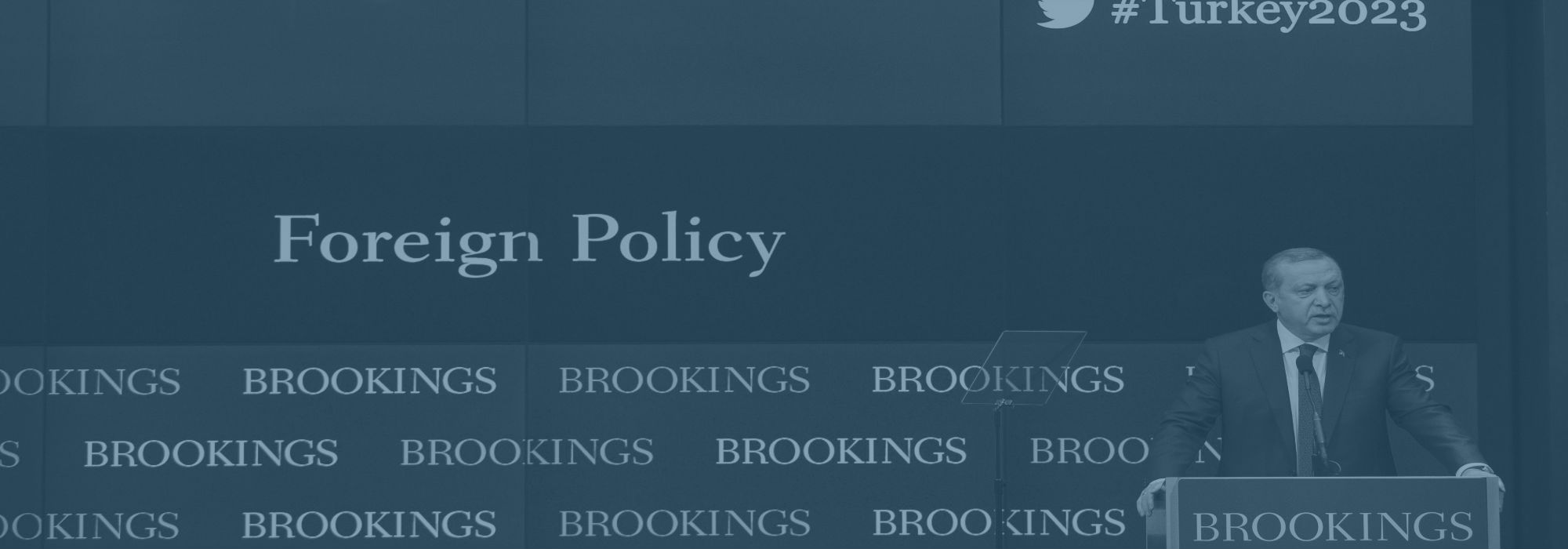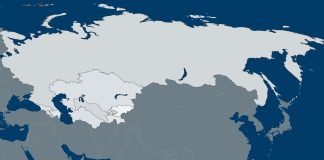By Kamran Bokhari
Summary There is a tendency to view heads of state with contempt when they don’t conform to certain values, but doing so is detrimental to the practice of analysis and forecasting. Recently, Turkish President Recep Tayyip Erdoğan has provoked public ire for his increasingly autocratic behavior. Through an empathetic approach, we can appreciate the rationale behind the decisions of leaders like Erdoğan, rather than simply dismissing them as reckless.
Turkey’s President Recep Tayyip Erdoğan is in Washington to attend the two-day nuclear security summit. Yesterday, he gave a speech at the Brookings Institution that was marred by controversy when members of his security detail reportedly kicked or shoved at least two journalists and attempted to remove another from the premises. His security detail also scuffled with anti-Erdoğan protesters and tried to remove journalists they deemed hostile from the room where Erdoğan spoke. D.C. Metropolitan Police officers tried to separate Erdoğan’s men and the protestors but could not prevent clashes. Notably the D.C. police said that no one had been arrested as a result of the incident.
For most people, the behavior is further evidence that under Erdoğan, Turkey is increasingly becoming an authoritarian state that suppresses the freedom of the press and the public’s right to peaceful dissent. But the important question is why Erdoğan would engage in behavior that would seemingly undermine his position.
The easy answer is to say that Erdoğan is either an autocrat or oblivious to the ramifications of his actions. But he did not come to power and bring the powerful military under civilian control by being anything but a very skilled politician. What seems like madness always has a method to it.
Erdoğan and his security officers knew that they would be greeted by angry protestors and journalists who would try to embarrass him over his anti-Kurdish policies and his unwillingness to confront the Islamic State. They also knew that their efforts to prevent the journalists from attending would be caught on camera for the whole world to see and only play to the advantage of their opponents. In addition, they realized that there are powerful lobbies in the U.S. that oppose Turkey and/or its current government and could use this to their advantage, especially in an election year, and further complicate already tense relations between Washington and Ankara.
Yet, they did not care and continued with their plan to evict those journalists who were hostile and in the process confront protestors. This was not a casual decision. But why give their opponents more ammunition? The answer is that in this instance, they didn’t really care what their opponents would say.
For the Turkish government, what matters most is taking a strong stand against Kurdish separatism. It is important for Erdoğan to show his domestic constituency that he makes sure the United States doesn’t just tell Turkey what to do, but rather has to deal with strategic issues important to Turkey. In the question and answer session after his speech at Brookings, Erdoğan was asked about relations with Israel and about freedom of the press. These are the issues Brookings cares about. But listen to Erdoğan’s speech and you will see these are not the issues at the top of Erdoğan’s list right now. What Erdoğan cares about is the Kurdistan Workers’ Party (PKK).
As important as understanding Erdoğan’s position is understanding how Turkish-U.S. relations fit within the context of our geopolitical model. The United States is trying to build a balance of power in the Middle East and wants Turkey to take on a more active role in combating the Islamic State. Turkey does not want to be dragged into a conflict in Syria and feels that its own Kurdish insurgency is more important. Also, Turkey has opposed Syrian President Bashar al-Assad’s regime from the beginning.
It is our view that Turkey will be forced to take steps to protect its interests in Syria eventually, but that doesn’t mean Ankara is eager to do so. Turkey and the U.S. are allies, but they also have different interests, and Erdoğan was drawing attention to his position and his independence as a leader. It may be a coincidence, but it should also be noted that this week relations between Russia and Turkey began to thaw following a tense period after Turkey shot down a Russian Su-24. A Russian delegation visited Turkey from March 28-30, and Russia’s Federal Air Transport Agency lifted a ban on passenger flights to the tourist destination of Antalya, Turkey. Turkey cannot afford to be hostile toward both the U.S. and Russia, and a more balanced relationship with each is in Turkey’s interest.
That he was invited to speak at Brookings further emboldens Erdoğan, so he is under no pressure to shift from fighting the Kurds to fighting the Islamic State. On the contrary, Ankara has been openly critical of the Americans and the Europeans for what it says is a double standard on Kurdish terrorism by condemning the PKK but working with their Syrian counterparts. From the Turkish point of view, terrorists are terrorists, whether they are PKK or IS, but Syrian Kurds have a natural relationship with the PKK and therefore are a much bigger threat to Turkish national security.
Erdoğan’s speech at Brookings wasn’t aimed at the Brookings audience so much as it was aimed at Turks watching the speech. He led off the talk by discussing a bombing in Diyarbakır that killed at least six Turkish military personnel and for which he blamed Kurdish insurgents. He agreed to speak at Brookings knowing what type of audience he would be addressing. But he also did not want to be embarrassed, so his guards tried to remove protesters they felt were insulting him, and he gave a frank talk about Turkey’s strategic interests.
This had the potential to be a big deal. Erdoğan’s security guards squared off with Washington, D.C. police officers. American reporters, already predisposed to dislike Erdoğan, will now criticize him even more. The president of the National Press Club sharply rebuked the actions of Erdoğan’s security guards. But there have not been any more statements, and the situation seems to have calmed for now, though certainly there are many in Washington who have an incentive to make a big deal out of this incident.
Erdoğan came to the U.S. knowing full well that in informal conversations with President Barack Obama he was going to be asked to do things he doesn’t want to do and doesn’t plan to do, and to stop doing things that he has no intention of stopping. He also knew about the environment at Brookings and what kinds of questions he was going to be asked there. Ultimately, he is the president of Turkey. There is always a rationale behind the actions of leaders that observers miss if they do not place themselves in the leaders’ positions.
Whether or not Erdoğan is an autocrat crushing the freedom of the press is not the type of question that concerns Geopolitical Futures. We deal instead with the pressures and constraints under which leaders must operate. That helps us understand their behavior and, more important, what they will do next.






 Special Collection – The Middle East
Special Collection – The Middle East